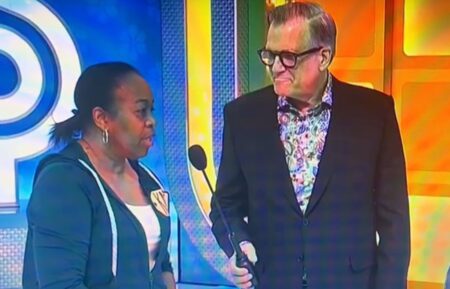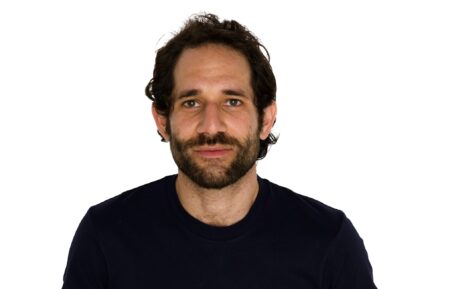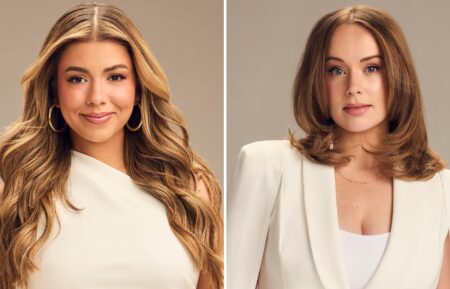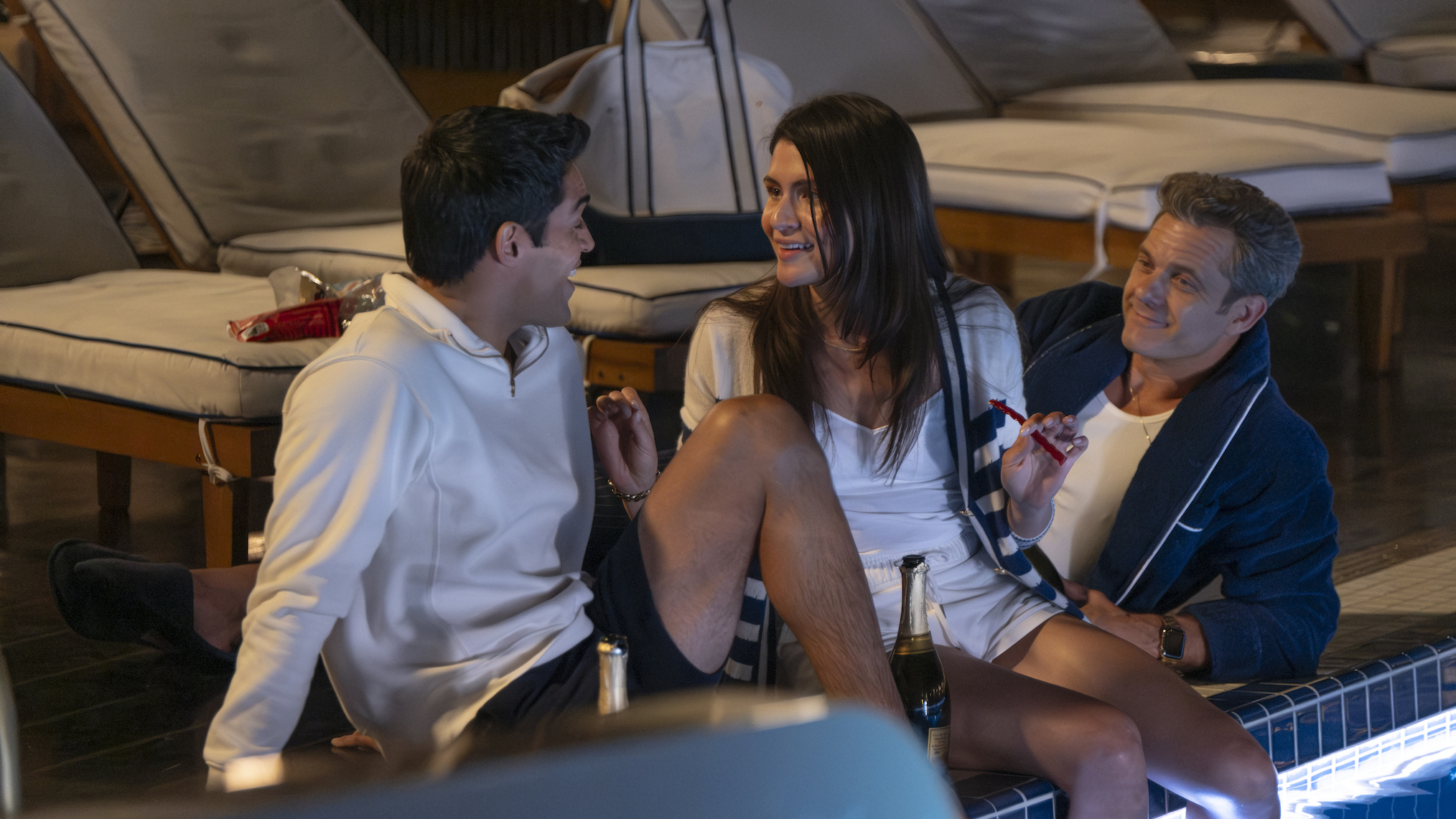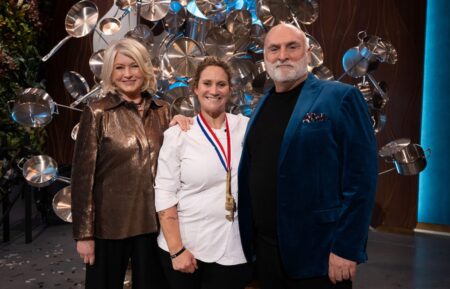Q&A: ‘NBC Nightly News’ Lester Holt on the State of TV News and His Busy First Official Week
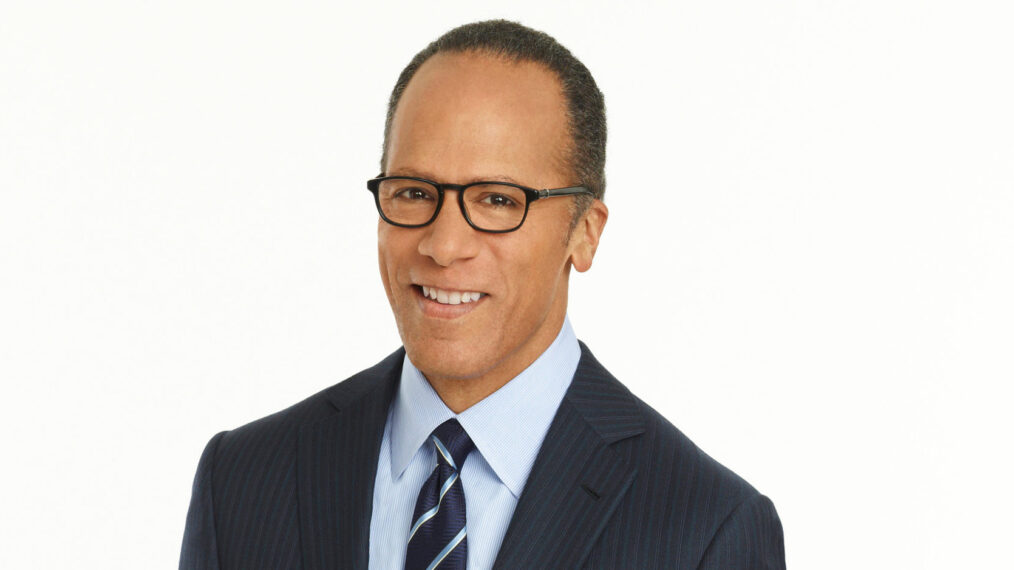
In its first promo for the NBC Nightly News with Lester Holt, the network proclaims, “When it really matters, you can depend on him.” And indeed, NBC has depended on Holt quite a bit, first to stabilize the newscast in the months after Brian Williams was suspended for embellishing some of his reporting experiences.
And now, NBC is depending on Holt to keep Nightly News in the ratings game against ABC’s surging World News Tonight with David Muir. Holt officially took the NBC Nightly News reins on Monday, and it’s been a busy first official week for the anchor.
On Friday, Holt travels to Charleston, S.C., where he will anchor the newscast following the funeral of Rev. Clementa Pinckney, the pastor killed in last week’s church shooting. (He will also anchor live coverage of President Obama’s eulogy at the service.)
A veteran anchor who spent years in local TV before moving on to MSNBC and then NBC News, Holt believes the network newscast is more important than ever, to help add context to the quick headlines found in social media. We spoke with Holt about his first week on the job, the state of network news, whether the age of the star anchor is over, and how coverage of the South Carolina shooting turned into coverage of the Confederate flag.
I attended college in Chicago in the early 1990s, and remember watching you on WBBM-TV.
Oh yeah, back in my moustache days! So you were watching back when it was Walter Jacobson and Bill Kurtis and all of them.
A lot has changed, and 20 years later you’ve suddenly become the anchor of NBC Nightly News.
What a long and weird, crazy ride this has been.
What has the first week been like? There was a cloud over your head for the past several months, but now you’re officially sitting in that chair, your name is on the newscast and NBC is promoting it.
It’s been liberating. Liberating in that so much was hanging in the air here for so long. This week I am enjoying being able to talk now in future tense. I was at a point where I would have a conversation, and people would ask if I was available on this date, and I’d say, “Ehhhh, I don’t know.” I’ve been waiting for all of this to settle out. More than anything, I’ve been grateful for the support of my colleagues and the things I’ve been hearing from viewers. Really now can wrap my head around the future.
RELATED: What Lester Holt’s Ascension Means for NBC and Brian Williams
This has been a very busy news week, between the aftermath of the South Carolina shootings and today’s Supreme Court ruling on Obamacare. Has this also been an opportunity to introduce yourself to viewers who may not know you or your style?
Holt: I’ve been filling in for almost five months, and before that I was anchoring three different shows at NBC, so I certainly feel like the audience was aware of me, but you’re right, a week like this, we’re able to show the best parts of NBC News, and I recognize that people will be watching me through certainly a different lens this week knowing that now I’m the permanent face of the broadcast. It’s been a difficult news week and a busy news week, and that’s probably helped me move forward through all this.
Now that you’re in the chair, you’ll be peppered with the question of what a nightly newscast’s role should be in 2015. What’s your philosophy on the relevancy of network news?
I think the network newscasts, there’s almost a flight to safety toward them. By that I mean, we do have more ways of receiving news than we ever have. But I look at the way I get news during the day, and most of it is in short sentences. It’s in Tweets. It’s a headline here that comes on my smartphone. It makes you crave more. I like to think that people are feeling that way. And while they consume a lot of information during the day that they know they can come home to these evening newscasts and really get the day laid out in an understandable way with some perspective, and more than anything, a way of helping you relate and why it matters.
Who do you see as competition?
Our direct competition is still the other guys up against us, but when you look on a broader scale, our competition is anybody with Internet access and a smartphone. Because stories get Tweeted out, a lot of times they’re correct and a lot of times they’re not, but nonetheless that is our competition, our playing field. So we’ve got to rise above the game and distinguish ourselves every night.
There’s been a lot of debate over the networks moving away from hard news into more feature and service journalism. What’s the proper balance in your eyes?
It’s a half-hour broadcast and we try to cover a lot of ground. But I never want to be above the news. There are those “must-cover” stories every day that we have to cover. But where we’re going to distinguish ourselves are those enterprise stories, the investigations that we’ve been relying on. These series that we’re doing. If it’s out there and part of the national dialogue, we’re not going to ignore it. We can still report that story with our heads held high by finding a smart way to cover it.
The rap on viewers is that they aren’t interested in world news. This has been a very heavy domestic news week, but is there room for world news?
Holt: World news is something I’m tremendously interested in and we’ve got great foreign correspondents we rely on. It will remain a big part. I’m a big fan of foreign news and you’re going to see a lot on the broadcast.
You’ve probably seen plenty of think pieces declaring the end of the mega-anchor, and indeed, you’re taking this job without the managing editor title. Does the “mega-anchor” still exist?
I don’t think the mega-anchor or “Voice of God” anchor exists anymore, that’s not something I aspire to be. I’m a guy that loves news, loves television news and loves to tell stories. There’s no better platform than the nightly news. I don’t elevate myself, put myself on a special platform. It’s not false modesty, I fully understand that these are important broadcasts and I’m honored to have one of these few jobs. I don’t want to get too big for our britches here. I get uncomfortable for people to see me in that way.
At the same time, in these jobs you become a personality. You’ve appeared over the years on TV shows like 30 Rock. Brian Williams was criticized for the amount of extracurricular appearances he did. What’s your feeling on how much you can do outside of the job?
I have a couple of answers for that. One is, this whole notion of celebrity, we come into people’s living rooms every day. People begin to learn who you are. You’re a part of their life. If that’s celebrity, so be it. What do we do with it? We try and connect with the viewers through it. I’ve relied more and more on social media as a way for viewers to know me. When I was on the Today show on the weekends, people had plenty of ways to find out about me. On those shows you lay it out there, they know the kind of music you listen to, what kind of movies you like, what your kids’ names are. All those kinds of things. On Nightly News you don’t have the ability to connect on that level, so I’m relying more on social media now to connect with people and keep up some kind of connection. As far as doing cameos and talk shows, I don’t rule them out of hand. I’ve got a lot on my plate right now and it’s not something I’m thinking about but I’m sure the phone will ring or an email will come at some point and we’ll review them on a case-by-case basis. The most important thing is that my work speaks for itself and that it remains at the highest level.
RELATED: NBC Can’t Quit Brian Williams, But Perhaps It’s Time to Drop the Anchor Act
Your colleagues and competitors on the cable side make a lot of noise. Just this week CNN’s Don Lemon got a lot of flack for holding up a sign with the “N” word on camera. Your thoughts on whether that distracts from the news?
Cable is a different platform, and it the audience has an expectation of more personality, more opinion, more point of view. That’s fair. I watch cable, and find a lot of these shows quite interesting. Our job is to give you a straightforward look at the day, with some analysis sprinkled in. But cable like any other business has found the secret sauce.
Are you surprised the post-shooting story has shifted to more of a focus about the Confederate flag?
The flag fight has come and gone over the years. I’m not surprised it came down to this because in this case the shooter had demonstrated he had embraced the flag and it was seen in some of those photos. It also provides something tangible that people can point at, they can discuss, and they can deal with. It doesn’t address the larger issue of racial relations in this country, but it does allow people to express in some cases an outrage over all this. It has given them an avenue to do that. But it’s a part of the story. It’s how people are dealing with a larger situation that is difficult to solve. The flag is something people can touch and deal with.
This being such a politically divided nation, how difficult is it to preside over the news when part of the audience is going to dismiss you as the “liberal media” and another part will label you the “corporate media”?
I am really good at shutting out the noise. I read Twitter, I know the comments after this broadcast and any other broadcast I’ve done. I’ve seen people take shots at the media for this or that. I’ve got to feel comfortable in my own newscast. I take criticism very seriously when I read something and tell people the criticism that hurts the most is when it’s right. When someone takes a shot and I get my feelings hurt and I take a deep breath and I read it again, I’m like, “You know what? They made a pretty good point there.” And I file it away and I’ll apply it to how we move on. But there’s no agenda here. It’s hard work. My only pledge is we will try to be better tomorrow than we were today.
You thinking of adding a personal sign-off to your newscast?
I don’t know, maybe at some point. I think there’s some expectation that it will come about. I haven’t really thought about it. This has been a difficult five months, and my whole focus was making sure I could maintain this already successful broadcast.


